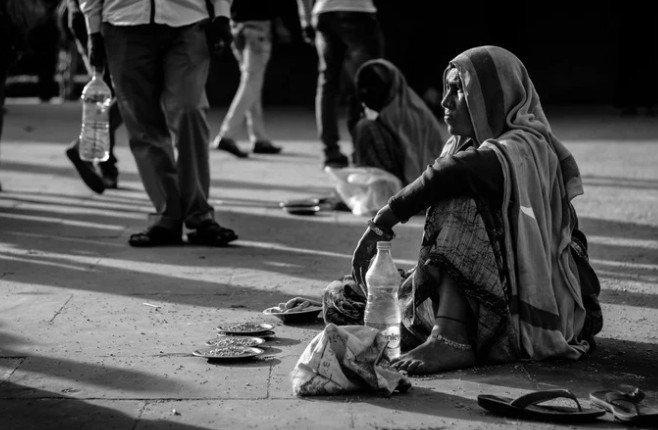In a significant and unprecedented step aimed at eradicating child trafficking and the persistent menace of forced child begging, the Punjab government has ordered all Deputy Commissioners (DCs) across the state to enforce DNA testing for children found begging with adults on the streets. This landmark decision, announced under the state’s Jeewanjyot-2 project by the Directorate of Social Security (Women and Child Development), is designed to verify the familial relationship between the child and the adult accompanying them. The directive is being viewed as a bold move that not only seeks to curb the criminal exploitation of children but also places their protection at the center of social governance.
The directive mandates that whenever a child is found in the company of an adult during begging activities, and their relationship appears suspicious, a DNA test will be carried out to confirm biological ties. Until the test results are made available, the child will be placed in a Child Care Institution (CCI) and placed under the supervision of the local Child Welfare Committee (CWC). Officials have emphasized that if the test confirms that the adult is not biologically related to the child, strict legal action will follow. This could include charges under laws related to child trafficking, kidnapping, child labor, and the Prevention of Begging Act.
The need for such a measure stems from an alarming rise in reports and anecdotal evidence of children being trafficked or abducted and then forced to beg by organized rackets. Children, being the most vulnerable members of society, are often easy targets for such criminal networks. These children are made to appear destitute and helpless, their innocence weaponized to manipulate public empathy and generate money for those exploiting them.
By introducing DNA testing as a verification tool, the Punjab government aims to pierce through this veil of deception and separate genuine cases of poverty from organized crime. This approach serves a dual purpose — it provides immediate protection to potentially trafficked children and acts as a deterrent to those who attempt to profit from their exploitation. The move reflects a broader policy shift from reactive welfare measures to proactive, evidence-based intervention strategies in child protection.
Social welfare officials involved with the project argue that DNA testing, while sensitive in nature, is a scientific and non-invasive way to determine truth in such complex scenarios. It prevents the need for subjective judgments based on appearances or statements alone. Once a mismatch is found between the child and the adult, it paves the way for detailed investigations that could uncover larger trafficking networks or systemic abuse patterns operating under the radar.
Additionally, the directive supports last month’s order by Women and Child Development Minister Baljit Kaur, who called upon all Deputy Commissioners to work towards declaring their districts “beggar-free zones.” She emphasized that children seen at traffic lights, marketplaces, and urban centers, often dirty, barefoot, and hungry, are not just victims of poverty but of an orchestrated system that thrives on public negligence and weak law enforcement. By reinforcing regular district-level monitoring and assigning legal accountability, the state is laying the groundwork for lasting change.
Kaur also confirmed that the government is considering legislative amendments to the Punjab Prevention of Beggary Act, 1971. The revised law would introduce more stringent punishments, including heavier fines and potential imprisonment for individuals or organized groups found forcing children into begging. These would also apply to guardians or parents proven to be complicit in such acts, a move aimed at eliminating excuses of familial helplessness in favor of stronger child rights enforcement.
Experts in child rights advocacy and social justice have welcomed the DNA test directive, noting that it bridges the gap between welfare intentions and enforceable action. Many have pointed out that while India has strong laws under the Juvenile Justice Act and the Protection of Children from Sexual Offences (POCSO) Act, enforcement often falters due to lack of evidence or timely intervention. DNA tests can offer irrefutable proof in court and significantly strengthen the prosecutorial process.
At a broader level, this move by Punjab could set a precedent for other Indian states battling similar issues of child exploitation. With India being home to thousands of street children, many of whom are undocumented, trafficked, or abandoned, the need for a strong and uniform framework for identification and protection is urgent. If successful, this initiative could evolve into a national strategy — one that prioritizes the dignity, safety, and future of every child over public complacency or systemic inaction.
In a country where public spaces often double as survival grounds for the exploited, Punjab’s policy shift sends a powerful message: that the state will no longer allow its streets to be stages for criminality masked as poverty. Through scientific intervention, institutional accountability, and an unambiguous political will, it aims to restore childhoods that were never meant to be sold or squandered.
#ChildRights #EndChildBegging #StopChildTrafficking #PunjabChildWelfare #DNAForJustice #Jeewanjyot2 #BalProtection #SocialSecurityPunjab #ZeroToleranceForTrafficking #BeggarFreePunjab
This is an auto web-generated news web story.




